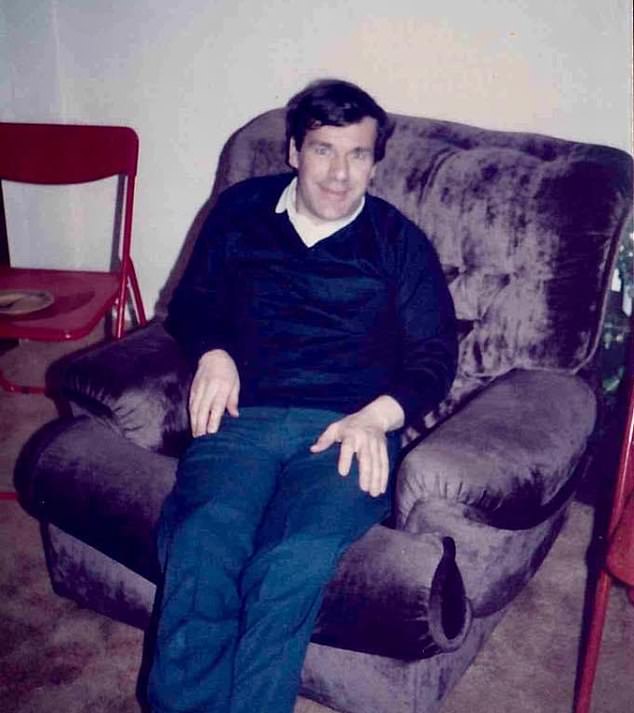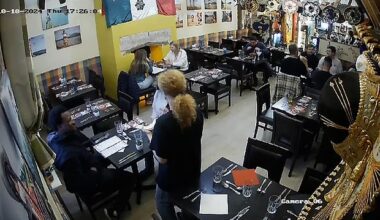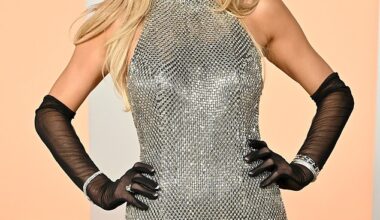Ronnie’s face shone as we walked into a clothes shop on the outskirts of Cardiff. It was only a week or so since our unexpected guest had knocked at our door, and his life had begun to change in ways that would ultimately astonish us.
Without any hesitation, he wandered from rack to rack. My wife Dianne stayed by his side. ‘When did you last buy clothes?’
‘I haven’t bought any,’ he said. ‘In the children’s homes, they gave you clothes.’
‘That was a long time ago,’ said Dianne.
‘I know. But they lasted.’
I took over. ‘Right. First task – a warm coat. What size are you?’
Ronnie looked down. It was another question in life he couldn’t answer. Dianne said: ‘I think you’re a medium, Ronnie.’ She pulled a black quilted coat from the rack. ‘This one might do?’

‘Two days before Christmas 1975, Ronnie appeared on our doorstep. Someone had given him a frozen chicken he did not know what to do with and, for some reason, he had remembered me and found out where I lived.’ Pictured: A young Ronnie Lockwood
Taking off his old coat and laying it on the floor, he slipped his arms into the new one. Dianne took a pace back, looked at him and clapped. ‘Perfect, you look amazing.’
Ronnie did up the buttons, smoothed the front with his hands and looked into the full-length mirror. He was in his new coat, flanked by two people gazing on like proud parents buying their child’s first school uniform. It struck me this was a reflection he had never seen before.
Ronnie and I had met as children at Sunday school. I was from an impoverished but loving family. He was living in a children’s home, having been removed from his family aged eight and had what we now call ‘learning difficulties’.
Life had taken us in very different directions. At 27 I was at the start of a career as a solicitor and destined to become a partner at my law firm. Dianne and I had been married for four years and had bought our first home.
Ronnie had been terribly injured when an initiation ceremony at the children’s home went wrong. He was never again able to straighten his legs without pain. Aged 11, he was sent hundreds of miles away to a school for ‘subnormal boys’, then at 16 brought back to Cardiff and dumped, alone, in a dingy bedsit with a few kitchen utensils.
It was no surprise that he had slipped through the net and become homeless. Two days before Christmas 1975, he appeared on our doorstep. Someone had given him a frozen chicken he did not know what to do with and, for some reason, he had remembered me and found out where I lived.
My tender-hearted wife insisted Ronnie stay and eat with us, then stay the night. The next day was Christmas Eve. We couldn’t throw him out on a day like that, could we? Then Christmas Day, then… we had taken advice from the manager of the local homeless shelter, who said his best hope of being settled was to get a job, so we had decided he should stay with us until he got started.

Dianne Parsons, wife of Rob (pictured together), insisted Ronnie stay and eat with the family over Christmas, and then stay the night
I had taken Ronnie to the Job-centre, where his talent for getting up early each day and tidying our kitchen landed him a job as a ‘waste operative’ – a dustman.
Dianne insisted he have new clothes for his job. An hour later, Ronnie’s basket was full: three shirts, two sweaters, two pairs of trousers, a pack of socks, a pair of trainers and the black coat.
As Ronnie lifted each item to examine it, I whispered to Dianne: ‘He’s got a job as a dustman. We’ve kitted him out as if he’s the
banqueting manager at the Dorchester.’ Dianne smiled. As we queued to pay, she leant into me to ask: ‘What about underwear?’
I turned to Ronnie and whispered: ‘Have you got enough underpants?’ Ronnie didn’t hesitate. ‘I don’t wear any!’
Dianne’s face darkened and she hissed: ‘What! A grown man with no knickers? Go with him now!’ Like lambs, Ronnie and I went in search of boxers and Y-fronts.
Dianne woke me at 6.10am on Ronnie’s first day: ‘I think you should give him a lift to work.’
Ronnie sat at the breakfast table in his new clothes, including his overcoat. He didn’t speak for the ten-minute trip, just stared out of the windscreen, his face pale.
‘Remember, you have to ask for Mr Clarkson.’
‘I’ll be fine,’ he said, getting out and closing the door.
I pulled forward so I could watch him walk up the path into the yard. He made his way towards some low, flat-roofed buildings where a group of men stood talking and laughing. As he went towards them, dragging his feet, he looked out of place – isolated.
As I drove away, I started to cry. But when Ronnie came home he seemed energised, launching into a long catalogue of bin types and street names. ‘Mr Clarkson [his supervisor] said I’m perfect as a binman,’ he said proudly.
I could have cried again – with tears of frustration – the day he got his first pay cheque.
When I mentioned it was payday, he said: ‘I’m going to pay you back the money I owe you [for the clothes] next month and take you for a meal then.’
‘That’s fine, Ronnie. But why not this month?’ He was glued to Coronation Street. ‘It’ll be better then. I think I’ll have an early night.’
I went upstairs and knocked on his door. He was sat in a chair looking out of the window. I perched on the end of his bed and asked him to let me see his building society passbook.
There were two entries. The first was a deposit from Cardiff City Council and the second a cash withdrawal. ‘What’s this one, Ronnie?’ I asked, pointing to the first entry. He seemed glad to have a question he could answer easily.
‘It’s my wages.’ He went to take the book from me. I put my finger next to the second one. ‘And this?’

‘Ronnie flourished. Living with us, he had increasing exposure to the community,’ writes Rob. Left to right: Katie, Dianne, Lloyd on Rob’s shoulders and Ronnie
His hand froze mid-air. ‘It’s nothing.’ He looked as though he might cry. ‘What did you do with all that cash? You won’t be in trouble, Ronnie. I just want to know.’
The words came out slowly: ‘I’ve done a bad thing.’ When I got back downstairs, Dianne was in the kitchen. ‘Well?’
‘He’s blown almost £50 on one-armed bandits. He seems devastated. Honestly, I’m not sure if I’ve done the right thing or not. I told him I want to look at his building society book every week.’
Dianne too sometimes cried with exhaustion from having to be sister, social worker and headmistress when Ronnie was around. I played endless games of ‘Mastermind’, devising questions he could answer so he could declare after scoring ten points: ‘I’m brainy, I am.’ And his snoring could drive me mad.
But Ronnie flourished. Living with us, he had increasing exposure to the community.
One might expect him to be shy when faced with people he had never met, but the opposite was true. It was as if he had been starved of relationships all his life and was now ravenous. He devoured every opportunity for social interaction.
That connection could be as simple as putting somebody in a headlock (a childhood habit he meant in a friendly way), or simply grasping every opportunity to help.
He was put in charge of putting out chairs on a Sunday morning at church and stacking them away. He volunteered to do the washing up at the homeless shelter.
When he was asked to manage a football team made up of members of a local men’s keep-fit class for its annual match against the youth club, he looked as though he’d bagged a coaching spot with Barcelona.
Whether it was household tasks like tidying the kitchen, gifts at birthdays and Christmas, or helping with the church chairs, Ronnie came alive when he had the opportunity to give. I think that when he gave, he felt special, and needed – for somebody with his past, that was like rain in the desert.
Wonderful news: Dianne was pregnant. Ronnie had been in his job for almost four weeks. It was a Saturday; Dianne and I had slept in late and were having coffee in the kitchen. She said: ‘I think it would be good for him to be with us for a bit longer, but I think we need to have some boundaries.’
While Ronnie was at the homeless shelter at the weekend helping in the kitchen, we had a new TV delivered for his room. We added an armchair, courtesy of friends who had just got a new three-piece suite. Dianne had bought a throw for his bed and we had taken one of the lamps from the living room to put on his bedside table.
‘He’ll love it,’ I said. But he didn’t love it. He looked around, expressionless. I turned on the TV. He said: ‘I don’t need a television. I watch television with you and Di.’
I was determined to keep going. ‘Try your new armchair.’ He walked slowly towards the chair, gripped the arms and lowered himself into it as though it had electric wires attached.
The vibes in the room were not good. Dianne was upset and I was angry. ‘Well, we’ll leave you to it, Ronnie,’ I said, and added: ‘Come on, Dianne.’ She was more thoughtful than upset: ‘He was stubborn, Rob – even rude, but the truth is he doesn’t want a room of his own. He wants to be with us. We’re cross with him but I’m not sure making us feel good is a gift he can give at the moment.’
As we spoke, Ronnie came into the kitchen and asked for a word in private. He spoke slowly: ‘Is it because I did a bad thing?’
‘What do you mean?’
‘You know – with the machines and the money?’
I called Dianne. ‘Ronnie thinks we want him to have a room of his own because he spent his wages on the one-armed bandits,’ I said.
Dianne put her hand on his arm. ‘Oh, Ronnie that’s not true at all. Rob and I love having you living with us. We just want you and us to have some space sometimes.
‘One day you’ll have a place of your own, but we want this room to feel like yours.’
He kept his head bowed. ‘I know I do bad things sometimes.’
Dianne spoke slowly. ‘It’s not because you’ve done a bad thing, Ronnie. It’s because you’ve done lots of good things since you’ve been with us.’
He looked distant, went to speak, but hesitated. He got up from the bed, turned the TV off and said: ‘I like the rug.’
Dianne’s illness changed everything. In October 1980, Ronnie had been living with us for five years. Our daughter Katie was three and her brother Lloyd had just been born. Lloyd was a wakeful, demanding baby. I was working all hours as our law practice was expanding.
I came home one day to find Dianne in tears: ‘I don’t know what’s happening to me. I feel as if I’m walking around in a fog… I don’t think I can cope any more.’
She spent much of that winter in bed. No one really knew what was wrong, her body seemed to have crashed. She had just had her gallbladder out, we had moved house and within weeks she had given birth to Lloyd.
A friend suggested postnatal depression. She was eventually diagnosed with ME.
Ronnie was the one who helped me make up the baby’s bottles, the one who sat with Katie watching Ivor The Engine while I walked the streets pushing Lloyd in his pram, trying to get him to sleep.
It was Ronnie who helped clear vomit – or worse – from the kids’ accidents and, for the umpteenth time, made us all beans on toast.

‘When I braced myself to talk to Ronnie about moving out, it was Dianne who stopped me before the words were out. She could not bear to hurt him.’ Pictured: A young Rob and Dianne
One night I settled Lloyd into his cot and came downstairs to find Ronnie and Katie in the living room glued to George And Mildred. I picked Katie up from the settee. ‘Was it nice watching telly with Ronnie?’
‘I love Ronnie,’ she said. ‘He’s kind.’ I tweaked her nose. ‘He certainly is. Thanks for looking after her, Ronnie.’ He turned around briefly. ‘It’s fine.’
Ronnie and I were in this together. Somebody we both loved was ill and we were trying to get her through it.
Before this, I had been a combination of ad hoc social worker and surrogate father, but suddenly he became a friend – and perhaps the brother I never had.
Seven years later Dianne suggested we find Ronnie a little flat, arguing that he’d earned his independence. He’d been in his job for 11 years and his voluntary work at the church and shelter had shown he was reliable and competent. Besides, what would he do if anything happened to us?
I knew she was right but I also knew Ronnie would not see the logic. He would see it as a punishment, not a reward, and feel that he’d been abandoned once again.
Dianne was determined – but when I braced myself to talk to Ronnie it was she who stopped me before the words were out. She could not bear to hurt him.
Our kids had never known life without him. So Ronnie stayed.
One summer day in 2020 my mobile rang as I was working in my study. It was Ronnie. I was busy and ignored it.
Five minutes passed. It rang again. ‘Yes, Ronnie.’ He said: ‘Can you come up to my room?’ I ran up the stairs. He was sitting on the floor with his back leaning against an armchair. ‘I fell over but I can’t get up,’ he said.
His head was bleeding. When an ambulance arrived to take him to hospital, we could not accompany him due to Covid restrictions.
By that time we had five grandchildren and Ronnie had been living with us for 45 years. It turned out he’d had a stroke. He lost most of the movement down his left side.
I have never felt so helpless. In all the years Ronnie was with us he was never assessed formally with regard to his learning challenges, but we knew that in so many ways he thought and acted like a child. And he was alone.
The hospital staff did everything they could to help, but two weeks later he had another stroke, then we got a call from the hospital to say we should come as soon as possible.

Ronnie lived with the couple for 45 years before he passed away from a stroke. Pictured: Rob and Dianne Parsons
There was a large notice on the door of the ward: ‘Due to Covid restrictions, only one visitor per patient is allowed.’
When a nursing auxiliary pointed out the restriction, Dianne said politely but firmly: ‘We really appreciate all you are doing under such difficult circumstances, but Mr Lockwood lived with us for 45 years. We are all he has and we are both going to be with him as he dies.’ To her credit the woman didn’t argue. Ronnie was in a hospital gown. I pulled up a chair for Dianne and she reached and took his hand. He seemed to stir briefly.
I went to the window and looked out. I suddenly had a deep desire to do something.
In his account of growing up in care, poet Lemn Sissay wrote: ‘If the adults don’t care to hug a child, why should he feel huggable?’
I walked over to Ronnie’s bed, put my arms around him and held him close. I had not done that in all the years he was with us, and I wished with all my heart I could turn back the clock. As I clutched his almost lifeless body, and with tears running down my face, I whispered: ‘I love you, Ronnie.’
We sat in the darkness for a while. I wonder if we were grieving not just for Ronnie’s dying but for words we wish we had spoken, times we could have been kinder, frustrations that could have been brushed aside if only we had known that time was so short. And yet I think we also knew that was foolish: if there had been no regrets, there would have been no love.
© Rob Parsons, 2024
- Adapted from A Knock At The Door, by Rob Parsons, published by Harper Collins on November 21 at £18.99. To order a copy for £17.09 (offer valid to 23/11/24; UK p&p free on orders over £25) go to mailshop.co.uk/books or call 020 3176 2937.
Source link






